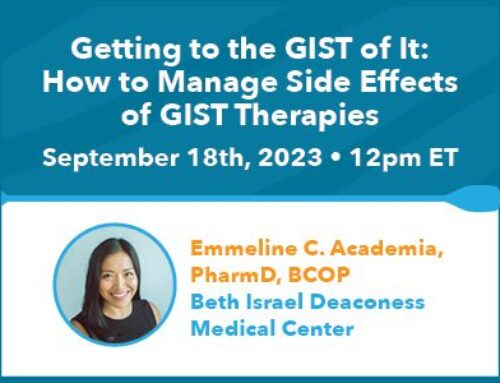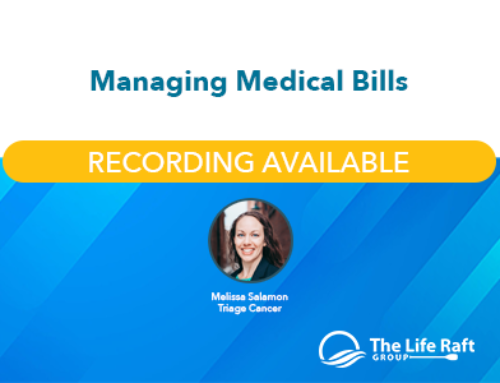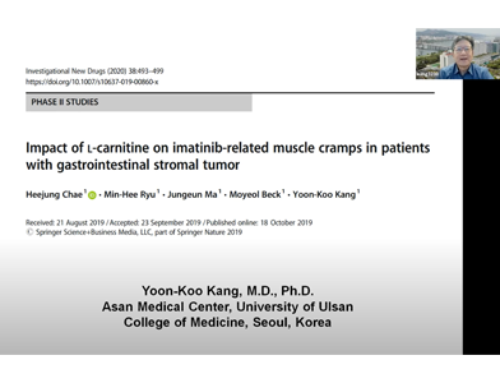updated 4/9/2020
There are many reasons for why patients experience fatigue and exhaustion but a major contributor is that Gleevec lowers the red blood cell count, a condition known as anemia. When you take Gleevec, it can reduce the amount of red blood cell production—this varies among patients. This low blood count causes a lack of oxygen to be carried to the tissues, in turn, causing weakness and exhaustion.
In extreme cases transfusions may be used to treat anemia. In some cases your doctor may prescribe growth factors such as Procrit or Aranesp to increase the number of red blood cells in your body. Recently however, there have been serious concerns with the use of this class of drugs including increased risk of heart attack, stroke, heart failure, clots and, in some cases, tumors growing faster.
In addition to the drugs used to treat GIST, the disease itself can lead to anemia. Tumors can bleed causing low blood counts and/or loss of iron. So your doctor may check for low iron and other GIST related issues.
Vitamin B12 is also involved in the formation of blood. B12 is absorbed in the terminal ilium not in the stomach. Removing portions of the digestive tract can cause deficiencies in the nutrients those organs would normally absorb. Patients that have had a total/partial gastrectomy or terminal ilium resection will generally require regular vitamin B12 shots.
Fatigue Coping Strategies:
- Take naps or rest during the day (but not within six hours of bedtime if you have problems sleeping).
- Save your energy for the most important things or reduce nonessential tasks.
- Try easier or shorter versions of activities you enjoy.
- Take short walks or do light exercise if possible.
- Talk to your health care provider about ways to save your energy and treat your fatigue.
- Try activities such as meditation, prayer, yoga, guided imagery, visualization, etc.
- Eat as well as you can and drink plenty of fluids. Eat small amounts at a time, if that is helpful.
- Join a support group. Sharing your feelings with others can ease the burden of fatigue. You can learn how others deal with their fatigue.
- Limit the amount of caffeine and alcohol you drink.
- Allow others to do some things for you that you usually do.
- Keep a diary of how you feel each day. This will help you plan your daily activities.
- Report any changes in energy level to your doctor or nurse.
- Don’t keep it to yourself. Talk with friends and family members about your stress.
- Learn to say “no.” You can’t do it all, so don’t try.
- Try to get the right amount of sleep. For most people, it’s between seven to 10 hours a night.
Interview with Dr. Reichardt
Many patients complain about fatigue. What can they do?
One of the main side effects of long-term treatment with imatinib is chronic tiredness, also known as fatigue. But fatigue is more than just being tired. It is more a feeling of lassitude, getting tired fast and feeling less efficient. To do something against it is very difficult.
Also, there are patients with a normal hemoglobin-level and they still feel tired, fatigued. That means that anaemia is not the sole reason of fatigue.
So what can one do? It is important to stay physically active and to avoid longer times of relaxation. Patients who take frequent breaks throughout the day often have sleeping problems. Patients should take walks, go swimming or try to actively do what they did prior to the disease. Physical activity often helps against fatigue.





